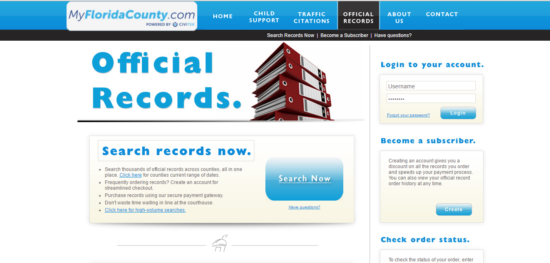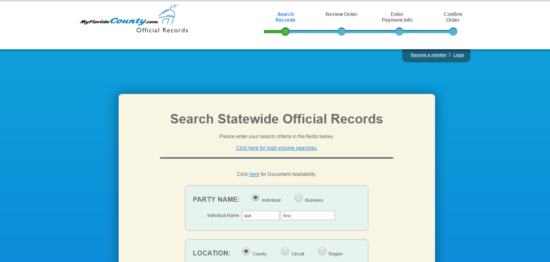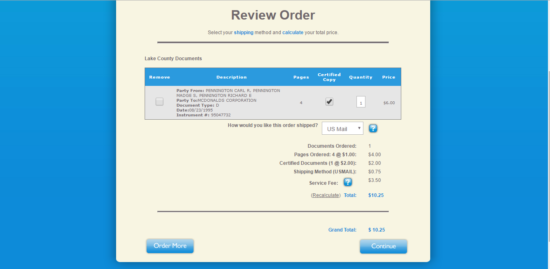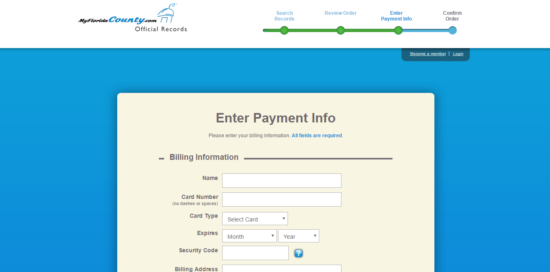Updated April 09, 2024
Florida deeds are what you need if you plan on selling or buying real estate in Florida. A deed is a document that allows a seller to transfer property to another at an agreed upon price. When you are purchasing a property, it is always important to know what the seller actually owns before you buy the property. Does he or she actually own the whole property? Does someone else have an interest in the property? Are there parts of the property that have been granted to others for their use, such as a shared driveway, or utility lines? These questions can be answered by completing a title or property search of the property or a land records search. Often a title company will do this and if you are borrowing money to buy the property, your bank most likely will do a title search.
Laws – Chapter 689 – Conveyances of Land and Declarations of Trust (§§ 689.01 — 689.301)
Appraiser’s Parcel ID – This must be included in the Legal Description.[1]
Recording – Must be filed, after being signed, witnessed, and notarized, with the Clerk of the Circuit Court along with the required filing fee.
Signing – All signatures must be acknowledged meaning that all parties must sign in front of a notary public along with two (2) witnesses (Search Notaries in Florida).[2]
Deed Types (3)
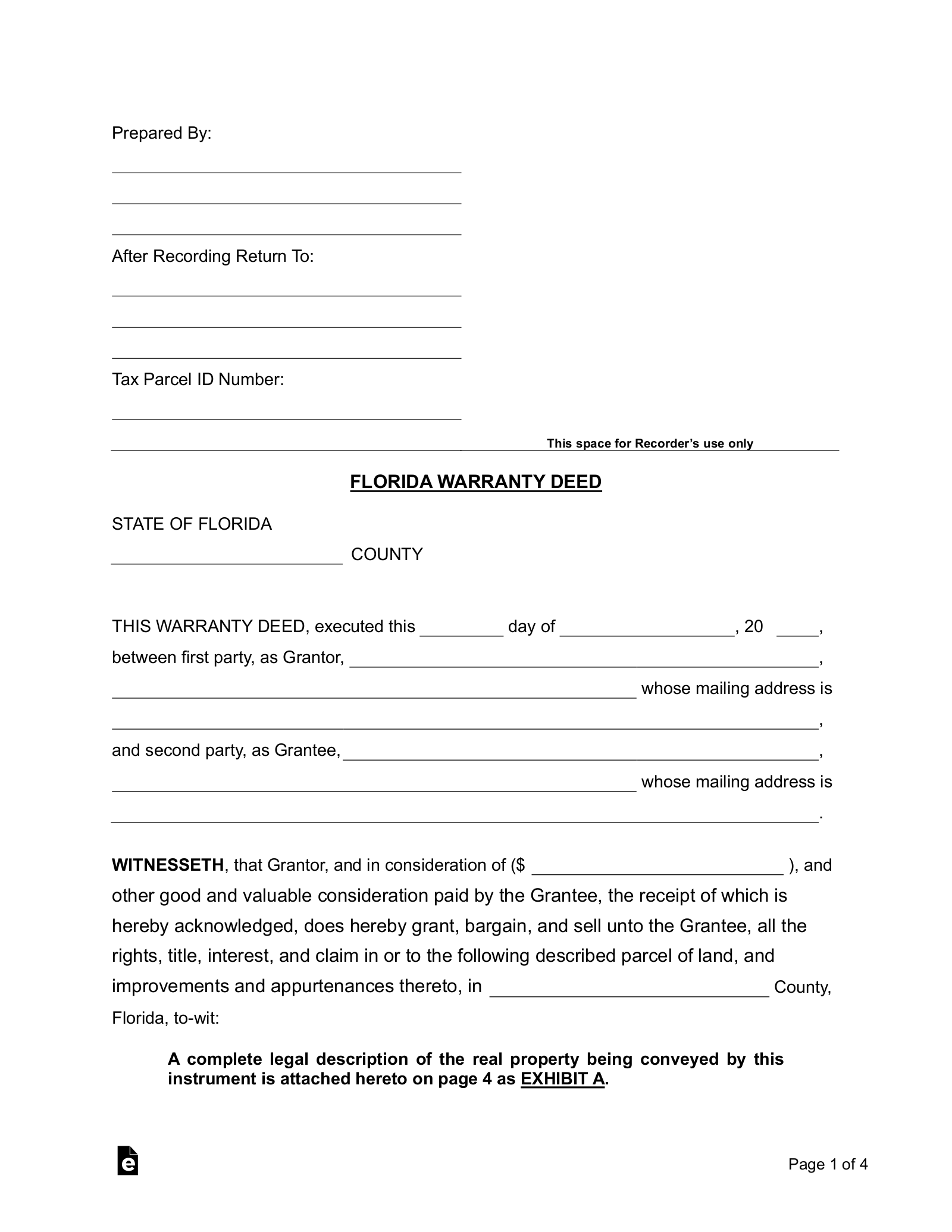 General Warranty – This type of deed includes a guarantee from the seller that they own the property without anyone else who can claim an interest in the property.
General Warranty – This type of deed includes a guarantee from the seller that they own the property without anyone else who can claim an interest in the property.
Download: PDF, MS Word, Open Document
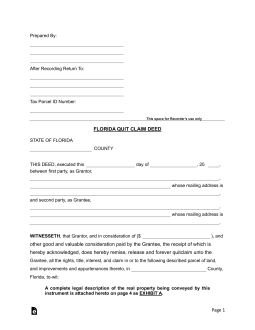 Quit Claim – This type of deed has no guarantee from the seller that they own the property.
Quit Claim – This type of deed has no guarantee from the seller that they own the property.
Download: PDF, MS Word, Open Document
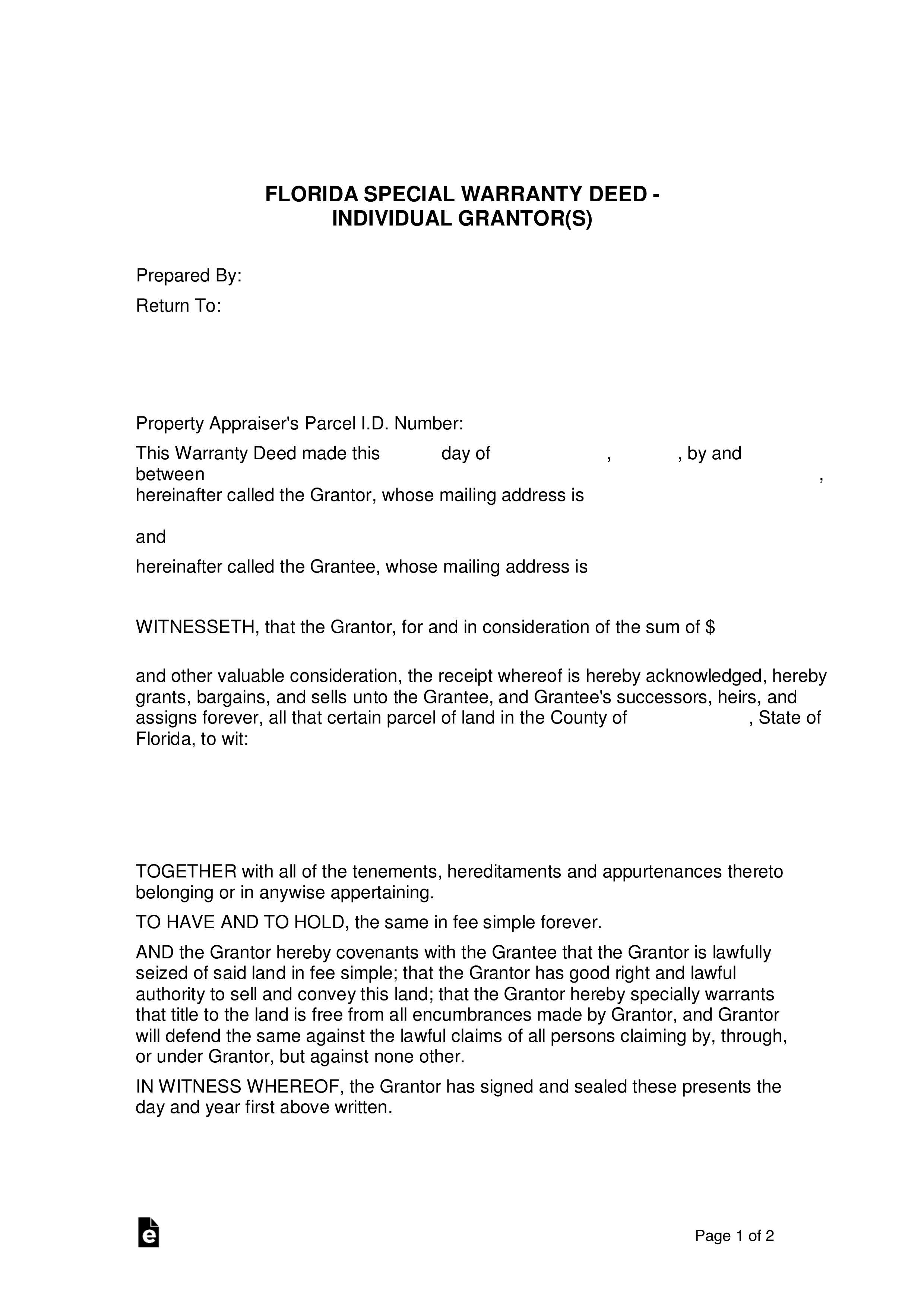 Special Warranty – This type of deed provides a limited warranty. The seller is assuring the buyer that they have not conveyed their interest to anyone else other than the buyer.
Special Warranty – This type of deed provides a limited warranty. The seller is assuring the buyer that they have not conveyed their interest to anyone else other than the buyer.
Download: PDF
Florida Property Search
In Florida, each county has a county recorder who is in charge of land records. Most counties have the records online, at least going back several years. If you need to go back further, you can go to the recorder office and complete a manual title search. Florida has a site where you can do a search of all the counties:
Step 1 – Go to MyFloridaCounty.com and click “Search now”:
Step 2 – You will be brought to this page:
Step 3 – The more information you have, the better. At a minimum, you should have the county in which the property is located and the name of the person selling the property. Enter the name of the grantor under “party name” and click the county in which you are searching. You will be brought to a page like this:
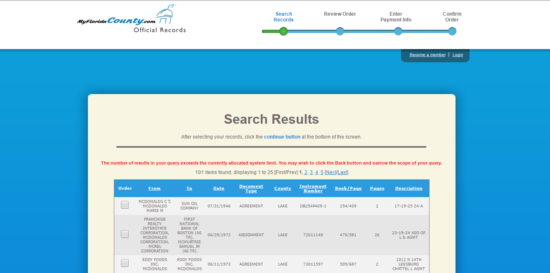
Step 4 – When you find everything that you need, click the boxes of the documents you want and click “continue”. You will be brought to this payment page where you click “continue”:
Step 5 – The next page asks for your payment information:
Step 6 – Once you have found that deed that grantor received when he or she bought the property, you will then have the name of the previous grantor. You will then want to repeat the process with that grantor and keep repeating the process until you have found all of the transfers for the last 50 years. You want to consider that you are not just looking for deeds, but other documents such as liens and assignments and easements. These are interests that can “encumber” the property.

